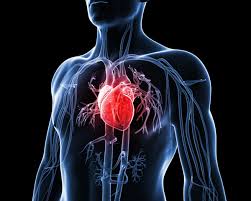Research has shown that nearly 33% of women who are 20+ years old suffer from hypertension. Hypertension is a primary symptom leading to heart disease. We’ve presented this statistic to you because it is often overlooked. However, women are actually more prone to die from heart disease than from cancer. Therefore, if you understand how to reduce the possibility or diagnose the disease early, you will have better odds at combating this fatal issue. Our urgent care Los Angeles facility has five tips to help you lower your risk.
5 Tips to Lower Your Risk:
- Lifestyle Habits: If you smoke, we know it can be hard to stop. However, if you think long-term you may want to consider stopping. Smoking and secondhand smoke can contribute to one’s risk of heart disease.
- Routine Exams: You definitely want to schedule appointments and visit your primary care physician on a regular basis. They can perform assessments for the usual risk factors leading to hypertension such as hyperlipidemia, smoking, and diabetes.
- Self-education: If you’re reading this then you’re already doing something right. You want to do your own research so you can understand what may cause heart disease.
- Healthy Diet: You want to stay away from bad fats and fill your plate with lean meats, vegetables, grains, fruits, and fish.
- Exercise: The American Heart Association recommends performing at least 30 minutes of physical activity a day. This should be done five days out of the week in order to promote good cardiac health. However, prior to taking on a rigorous exercise program, you should consult with a physician.
5 Ways to Measure Your Risk:
- Fasting Lipid Panel: Research and other medical evidence has shown that high levels of triglycerides, cholesterol, and low-density lipoproteins along with low levels of high-density lipoproteins have led to greater cardiovascular risk among women.
- Electrocardiogram (ECG): This test is much more official in terms of assessing heart disease risk. It can identify silent heart attacks and other slight changes in the heart muscle structure, which may be caused by diabetes or high blood pressure.
- Weight Assessment: Body mass index, or BMI, is an estimate of body fat based on the ratio between one’s height and weight. The healthy range to decrease heart disease risk is typically from 20-25.
- Fasting Glucose Test and Hemoglobin A1C: Women who have diabetes are at a greater risk of suffering from heart disease compared to women who do not have diabetes.
- Blood Pressure: Last but not least, you should check your blood pressure on a regular basis. If you’re not diabetic, then your readings should be less than 140/90. However, if you are diabetic, your readings should be less than 130/80.
About Vermont Urgent Care
While you cannot control heart disease, there are some factors that you can manage, which will aid in reducing your own potential risk. We hope this information has been helpful, and if you need any further assistance, please feel free to schedule an appointment at our urgent care Los Angeles. For more health tips and news follow us on Instagram, Facebook, and/or Twitter.
